 Zhao Lusi breaks silence on suffering from depression and physical abuse
Zhao Lusi breaks silence on suffering from depression and physical abuse
Sisyphus: The Myth should become a pivotal point of Kdrama history so there is a "before" and an "after". I had this idea because of some objective and game-changing facts, which I will present in this article. The future will tell us if this is valid. And we know that in the world of Sisyphus... The future is already here.
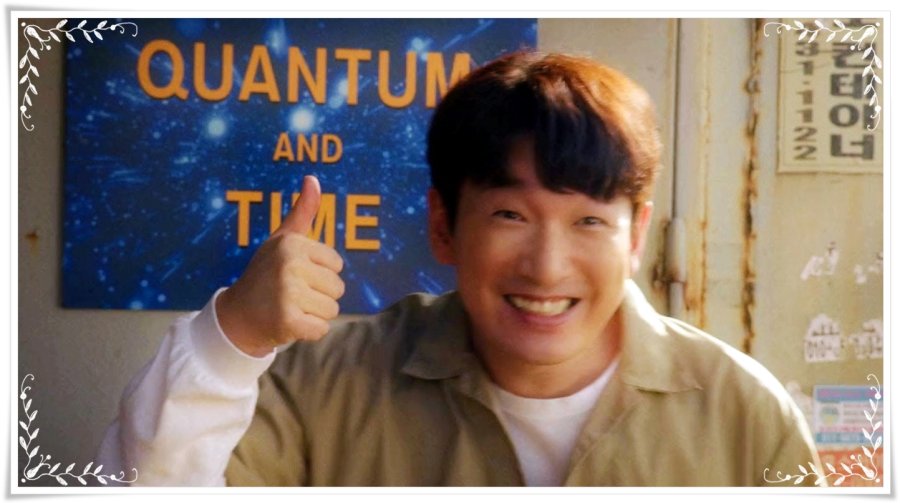
It's a good strategy that jTBC made Sisyphus: The Myth their 10th anniversary drama, providing a large budget. To create an impact in the drama world, jTBC channel struggled to get a spectacular script. Indeed, there was a legal issue with channel SBS. And like other great dramas of this kind, we can expect repercussions in the Kdrama industry.
A few reminders The drama was written by Jeon Chan Ho and Lee Je In from May 2016 to December 2018 (date when the writing was abandoned). Initially planned for 20 episodes, the channel SBS had put a room at their disposal to work. The channel could not find qualified personnel to shoot the drama. The contract of the writers was then changed to write the continuation of the drama Fates & Furies after the departure of its writer. Due to a default in payment for this work, the court ruled that the writers could legally reclaim their rights for Sisyphus. (Source: https://n.news.naver.com/entertain/article/312/0000461807) Arriving on jTBC, director Jin Hyeok was ready to shoot the drama if he could get Park Shin Hye and Cho Seung Woo as main actors. I haven't found any information about this, but I guess the script was reworked, at least to provide 16 episodes instead of the original 20. This is a script that had a long maturation time. Budget : ₩20 billion (~US$18 million). This makes it the 12th most expensive drama. To be compared with... Kingdom, season 1 & 2 : ₩35 billion for only 12 episodes. Hotel Del Luna : ₩20 billion. Descendants of the Sun : ₩13 billion. As a first observation, what appears on the screen seems to be well above the budget. |
Before considering Sisyphus: The Myth an influential drama...
Is it true that some dramas are notoriously influential?
Dramas that change the rules.
I've read a few articles on this subject. I present here a short list of what I remember. Keep in mind that there are other influential Kdramas for other themes, which would have been too long to list.
1995 - Sandglass
| Before, dramas could be as long as telling 500 years of Joseon dynasty during 7 years of broadcast. Sandglass is the first drama to be considered as contemporary, with a short format of 24 episodes. This format will be shortened to 16 episodes later, but regularly kept at 24 for historical dramas. The drama also established other themes, very deep background music. Unfortunately, many lessons were also lost, such as melodramatic authenticity or cinematic tone. |
2002 - Winter Sonata
This drama is the main marker of the Hallyu wave launching. Other melodramas in the same style will follow, such as the very famous Stairway to Heaven. |
2005 - My Girl
Before, the female lead was a refined, hardworking girl. To be romantic, the heroine must remain serious. My Girl introduces the female lead as the main comic role. Since then, there are countless dramas where the female lead is clowning around and making the audience laugh, while being a credible romantic heroine! |
2006 - Hwang Jin Yi
In terms of incredible achievements about cinematography and directing, I could have mentioned the drama IRIS from 2009, but this drama had a large budget. Hwang Jin Yi: a drama that is 10 years ahead in terms of cinematic quality. A clear signal that even with a normal budget, it is possible. |
2010 - My Girlfriend Is a Gumiho
Before, the girlfriend or boyfriend could be gangsters, billionaires, restaurant chefs, spies, something original but realistic. The few previous attempts were not successful enough to change the game, such as Nine Tailed Fox in 2004. Since then, lovers can be anything you want in the fantasy realm: Alien, robot, comic book character, ghosts, King from another world. |
2013 - Nine: Nine Times Time Travel
(Also the 2012 drama Queen In Hyun's Man from the same writer) Before, time travel stories always had the same outline: someone travels back in time at the beginning of the drama, and then returns to their own time at the end of the drama. There are many examples such as Time Slip Dr. Jin or Rooftop Prince. Although the concept of Nine is explained by fantasy, everything that follows is science fiction. The regular back and forth in time produces consequences, it becomes a puzzle. The drama is partly cerebral, like the following dramas of the writer, which will also open the way to parallel worlds. Who could have bet this would be successful in dramaland? | |
Since then, some dramas successfully keep to the classic mold, such as Mr. Queen. But many other dramas dare to engage in a complex style of science fiction or fantasy. The list is long! Kairos, whose principle is similar to Nine, mixed with Signal. The King: Eternal Monarch, Train, 365: Repeat the Year, and finally... Sisyphus: The Myth. | |
Sisyphus: The Myth redefines and breaks several elements.
Game changing facts are...
Great spectacle.
- We get big scenes of a magnitude never seen in a drama.
- Refer to a Korean blockbuster movie like Ashfall, for example. Ashfall trailer: https://www.youtube.com/watch?v=jTiHbwUWkns
- There is a huge number of different sets, often of cinematic quality.
- If we compare it with other dramas that use about three or four main sets, the action rarely occurs in the same places in Sisyphus: The Myth.
- There is an exceptional number of extras.
Some examples:
The stadium and the forest on the building.
The crowd in the conference room.
The whole breathtaking scene at the beginning of the war, including the car chase.
Also from the 1st episode, the train yard, the plane scene, and so many other examples.
- The CGI effects: They are good, for the temporal downloads or the time ghosts.
- The number of failures in this matter is very small, I think everyone knows them.
The two bad stunts on green screen during episode 3.
Conclusion: the sets and the action are worthy of a blockbuster movie.
Fight scenes.
- In dramas, It's the first time that Gun Fu is used with the way of filming it in sequence shot and dynamic camera (Korean style). The only other example comes from L.U.C.A.: The Beginning (elevator scene in episode 2).
- It can be compared to some of the fights in The Villainess, an innovative Korean movie, with less talent and preparation of course. However, the nervousness and shock are real! The Villainess bus fight: https://www.youtube.com/watch?v=qoGoFjm1gYA
- The apartment fight in Sisyphus is a perfect example.
- The gunfight scenes are a little less successful, even if we feel they tried to do it.
- This kind of scene is rare in Kdramas, and without comparing, it is of an honest quality.
- We'll have to wait a bit before we can get the sensations of John Wick.
- Sisyphus opened the door.
Conclusion: looking for action-movie quality fights, and it is partially successful.
Intelligence of the script.
The screenwriters have respect for the audience and don’t consider us as stupid people. They know that the audience is now used to understanding this kind of story. About Sci-Fi and Fantasy, screenwriter Song Jae-Jung said it in an interview in 2016: the audience is ready!
The screenwriters of Sisyphus have been working on the mysteries to surprise and anticipate what can be guessed, always two steps ahead. It offers a real challenge, even for hardened spectators who analyze in depth.
For the audience, this requires a certain investment and it is not the kind of drama that one could binge watch every week. It was nice to watch The Penthouse: War in Life on the side. Not because the storyline is less brilliant (it's just as good!), but because it's better not to think about it to be better surprised. For Sisyphus, it is the opposite, it is more pleasant if we try to decipher.
(No one can give Park Shin Hye a lesson about bulging eyes.)
However, the script also has the intelligence to satisfy the spectators who do not wish to invest themselves. Indeed, the action is very easy to follow, and many answers are given during the show. A complicated story can be written with great narrative clarity.
Conclusion: a new step has been taken in the anticipation.
Structure of the script.
- A structure of huge complexity, based on hyperlinks, multiple chronologies.
- An incredible work considering the number of details and elements that had to be defined in advance and dispatched everywhere, everywhen. Many easter eggs.
- Not to mention the juxtaposition effects (events of two time loops that intertwine).
- Each scene has a meaning and feeds the story in multiple ways, nothing is ever lost or unnecessary.
- We can just note some scenes made a bit longer, probably to adjust the length of the episode.
Conclusion: it shows other writers how dense and prepared the outline can be.
Trompe l'oeil logic.
- An illogical scene should grab the audience's attention and signal that something else warrants it.
- Unfortunately, and in spite of obvious insistence, some spectators have fallen into the trap instead of believing the authors.
- The television has so accustomed the public to contain errors, that to play on it knowingly is also a risk.
- For Kdramas to play on this, they will have to evolve towards a better coherence, because the audience often expects to find inconsistencies in the dramas.
- On the other hand, logic is also respected when it has to be, with many details triggering the sequence of events, step by step. I made the effort to break down some scenes.
- No detail is forgotten in the narrative logic, where a purely spectacular movie would have done without. At the risk of overloading the scene by adding justifications or superfluous dialogues.
- I hesitated to mention this among the main points. But to do this, it would have required more explanation, with a long scene analysis.
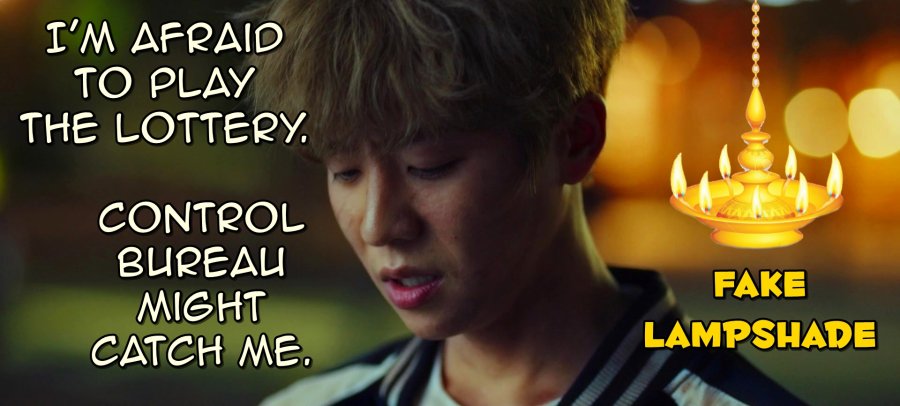
Conclusion: I don't remember another drama playing the voluntary illogic.
A decisive step towards better science fiction.
- The drama has an innovative concept of time travel.
- The first movie to go this far was Primer, which also used a "point A" and "point B" concept (which is download/upload in Sisyphus).
Primer "A end - B end" Concept.
This is a diagram from website : https://www.thisisbarry.com/film/primer-2004-movie-plot-ending-explained/
- But the Sisyphus main concept is even more credible on some aspects of quantum physics.
- Moreover, it is used differently, it is not a linear recursion.
- The inclusion of paradoxes and self-propelled events has a mind-blowing effect.
- The drama offers content suitable for hardcore Sci-Fi fans.
- Even if here, some of the extra concepts are still close to fantasy.
Conclusion: it is a signal that Kdramas should offer better science fiction.
Are all these changes good?
That's the open debate, in conclusion. I have often made the following observations:
- Cerebral content is hard to balance with emotional content.
- Starting with the posterity of Sandglass, Kdramas don't just gain something, they lose something too.
- Kdramas that look too much like Western series would be a disaster. They would have no soul and no heart.
- I already have difficulties to find my bearings in recent dramas and I miss the emotion of old dramas. Although these dramas also have notable flaws or fillers.
- If you're going to do something, you might as well do it well. This goes for sci-fi, action, and sets.
- However, successful action movies are often visceral and violent, I'd prefer this kind of thing to be exceptional and not invasive. The fight to the death should not be treated lightly.
- In Sisyphus: The Myth, the emotion is kept. So I'm hopeful that it can be done.
- The romantic story takes time to be convincing. This is often the case when the drama has to deal with many other parameters on the side: the cerebral content, the plot-twists, the spectacular scenes, the many other events and characters.
If there is anyone among you who reads Korean fluently and has information from drama business, and how the drama is considered in this environment, it would be a great contribution to this article.
Thank you for reading.


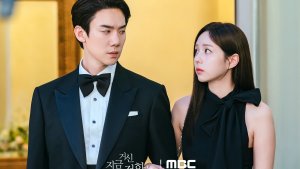
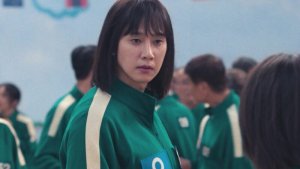
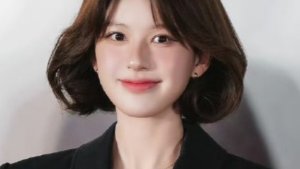
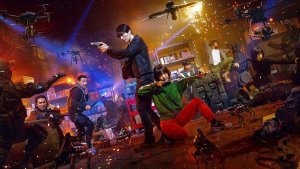
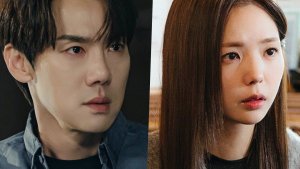


Commentaires